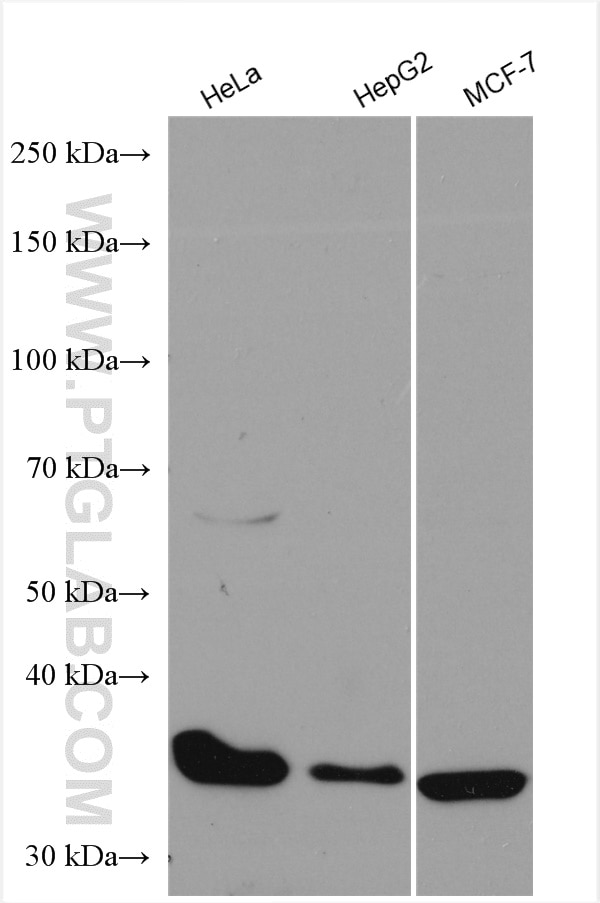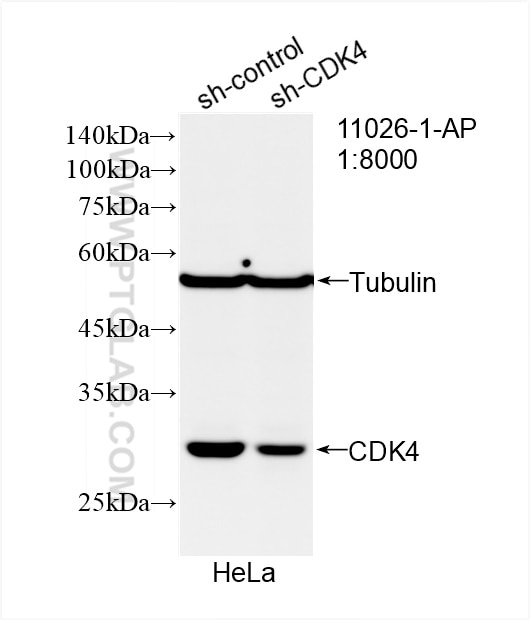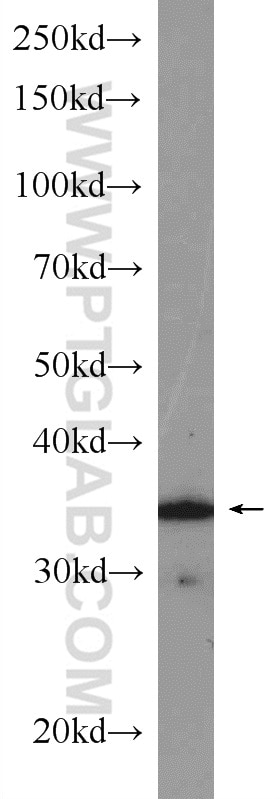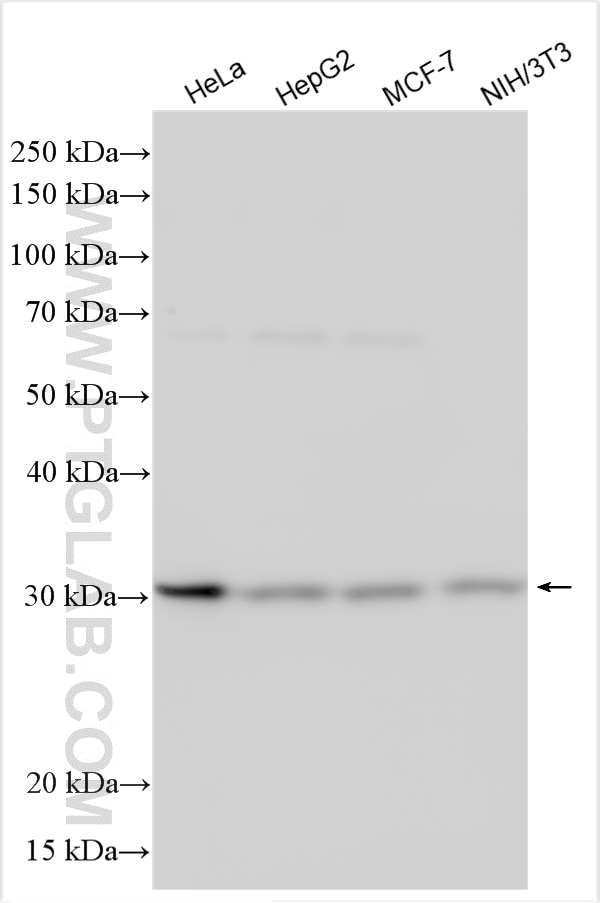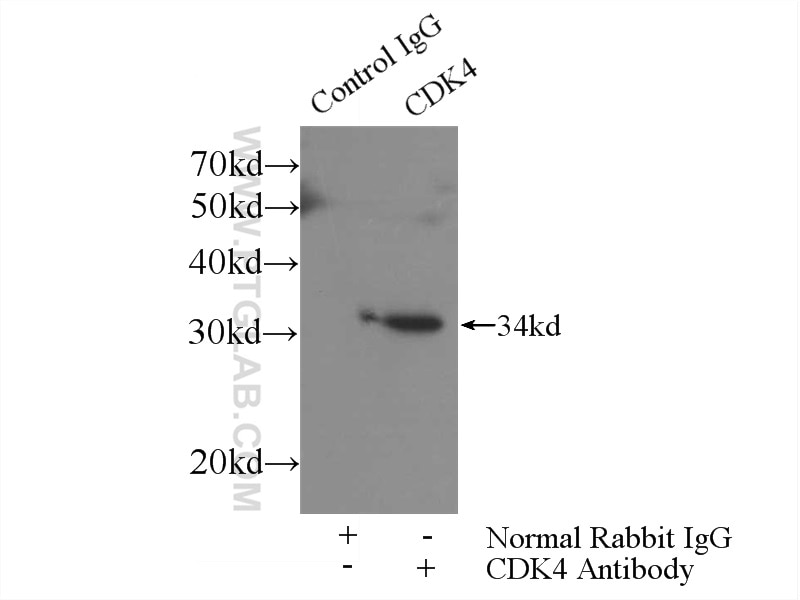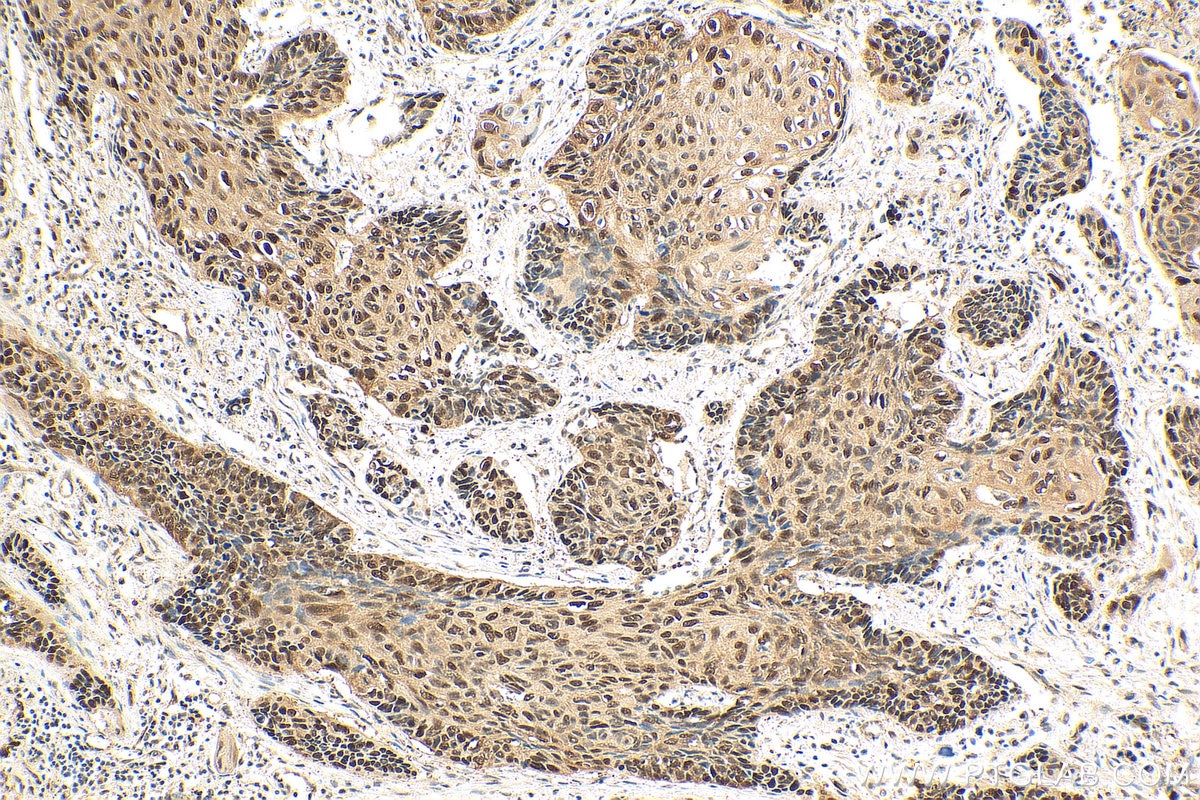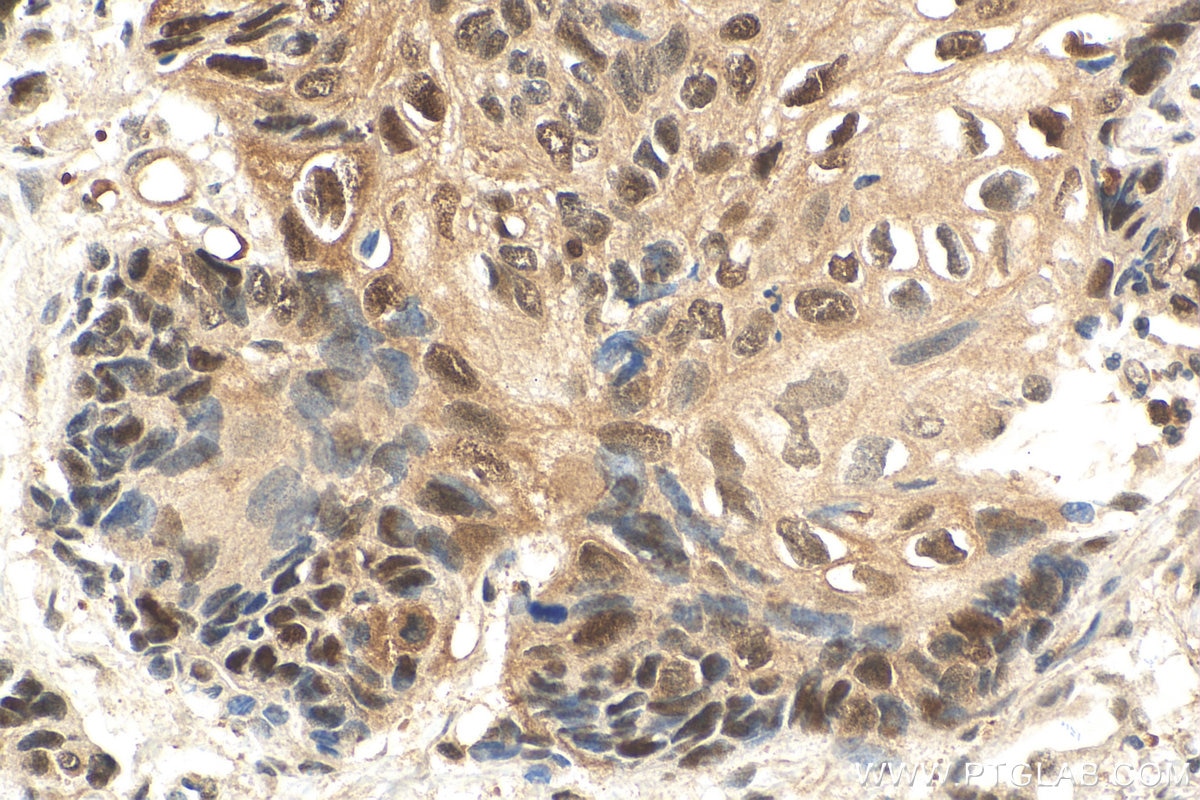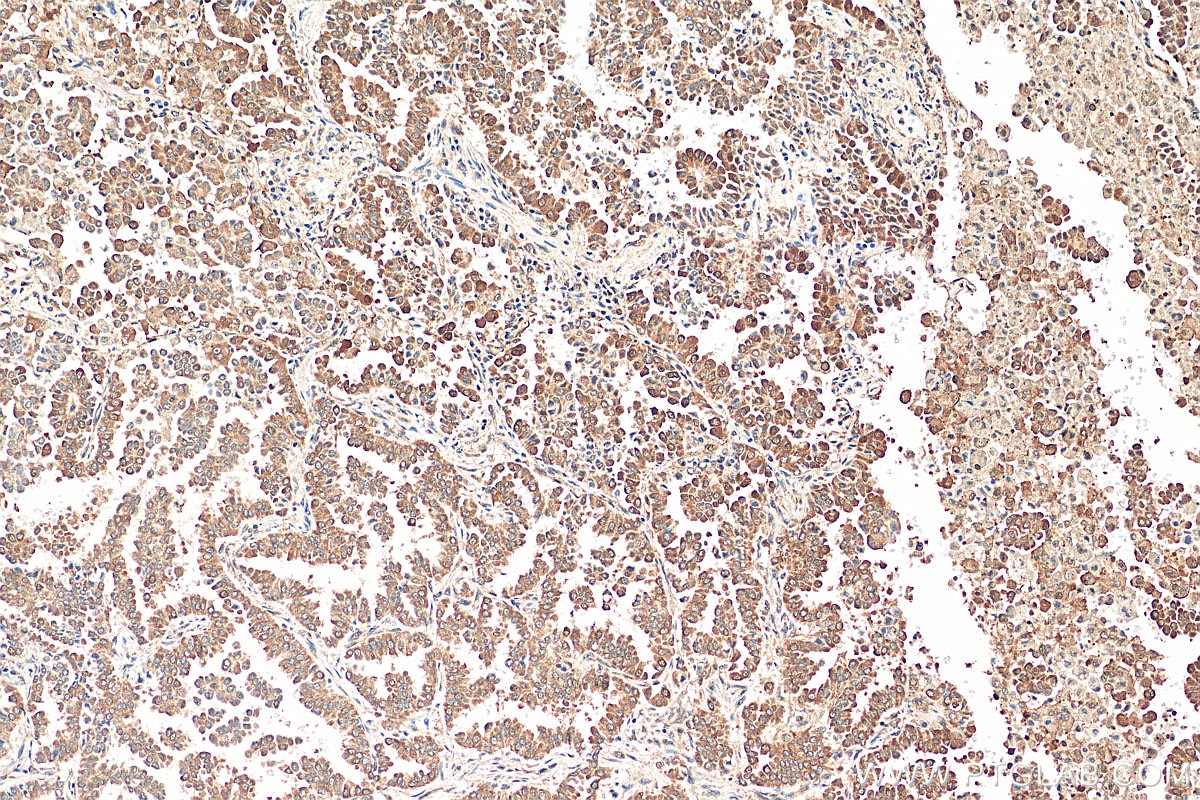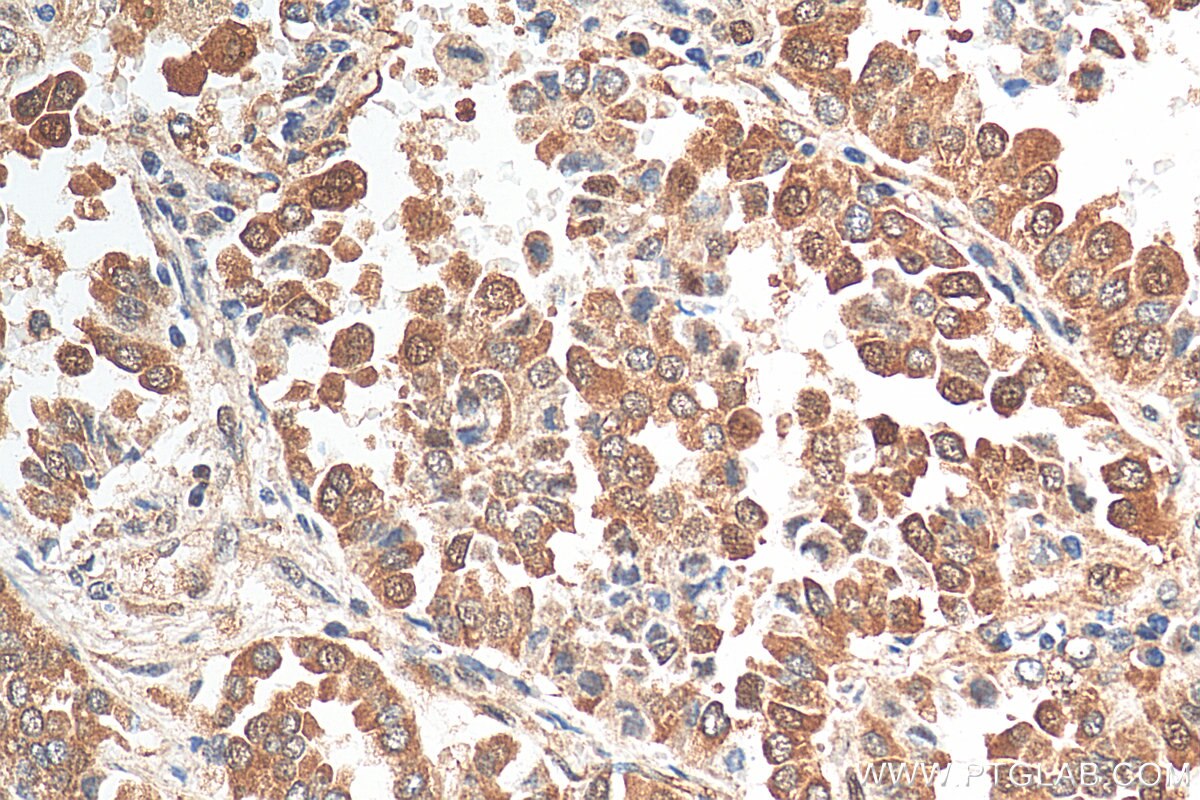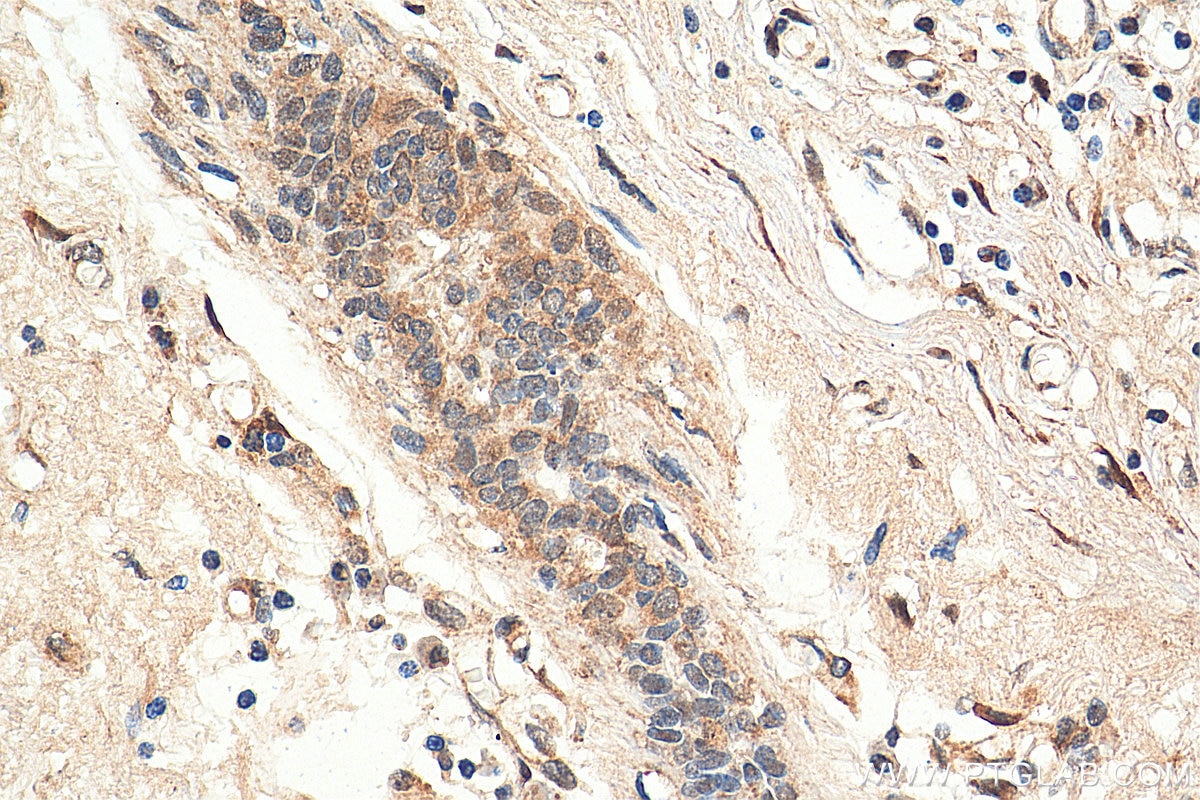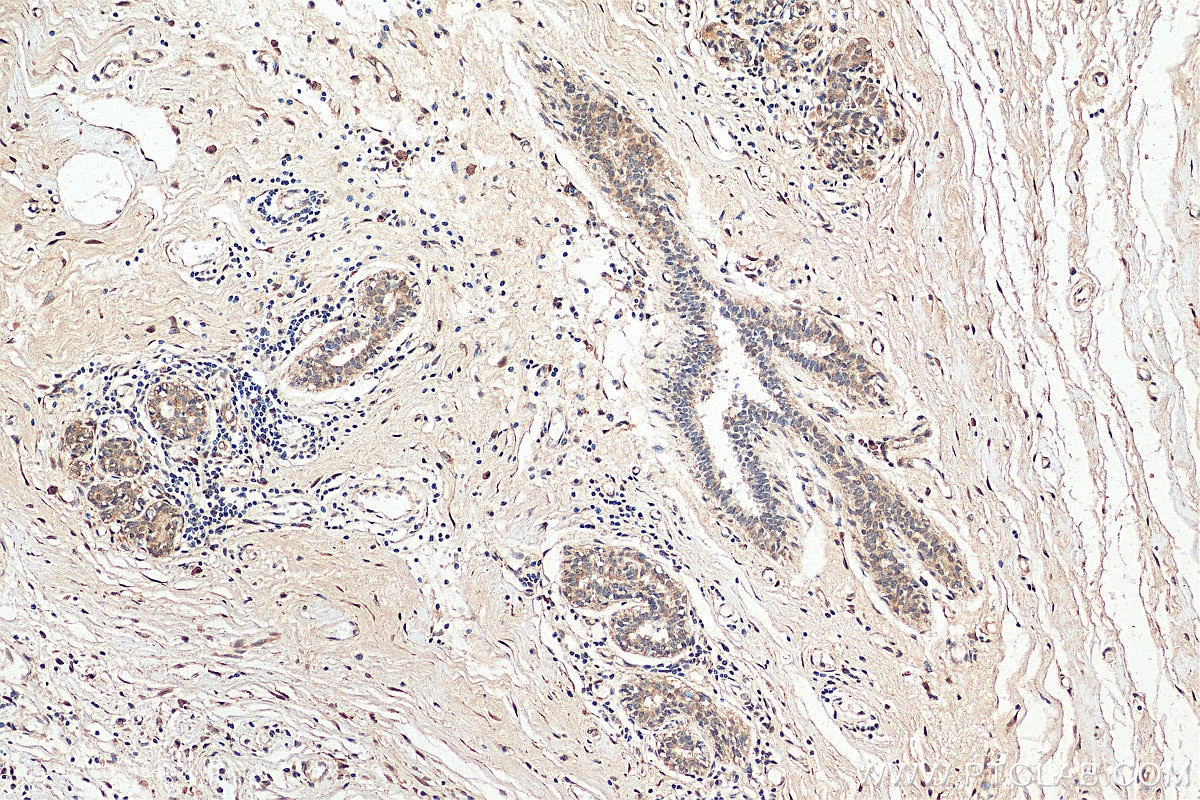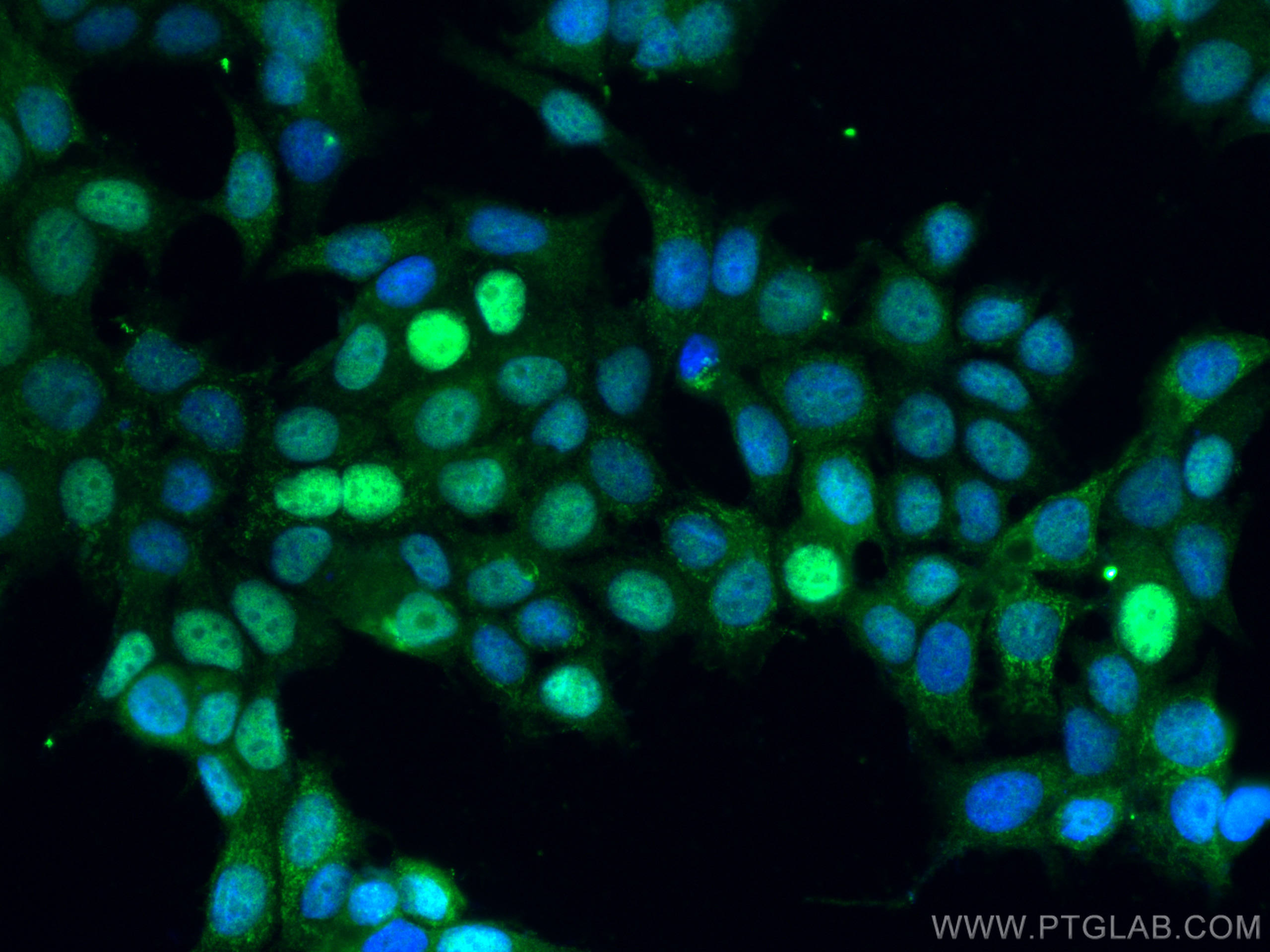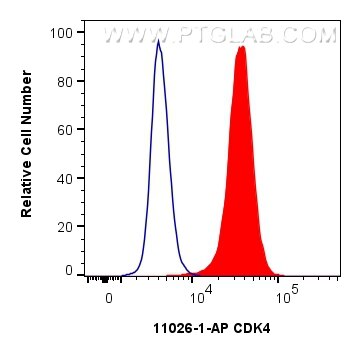- Phare
- Validé par KD/KO
Anticorps Polyclonal de lapin anti-CDK4
CDK4 Polyclonal Antibody for WB, IHC, IF/ICC, FC (Intra), IP, ELISA
Hôte / Isotype
Lapin / IgG
Réactivité testée
Humain, rat, souris et plus (3)
Applications
WB, IHC, IF/ICC, FC (Intra), IP, CoIP, RIP, ELISA
Conjugaison
Non conjugué
N° de cat : 11026-1-AP
Synonymes
Galerie de données de validation
Applications testées
| Résultats positifs en WB | cellules HeLa, cellules HepG2, cellules MCF-7, cellules NIH/3T3, tissu pancréatique de rat |
| Résultats positifs en IP | cellules HeLa |
| Résultats positifs en IHC | tissu de cancer du poumon humain, tissu de cancer du sein humain il est suggéré de démasquer l'antigène avec un tampon de TE buffer pH 9.0; (*) À défaut, 'le démasquage de l'antigène peut être 'effectué avec un tampon citrate pH 6,0. |
| Résultats positifs en IF/ICC | cellules MCF-7, |
| Résultats positifs en FC (Intra) | cellules MCF-7, |
Dilution recommandée
| Application | Dilution |
|---|---|
| Western Blot (WB) | WB : 1:1000-1:8000 |
| Immunoprécipitation (IP) | IP : 0.5-4.0 ug for 1.0-3.0 mg of total protein lysate |
| Immunohistochimie (IHC) | IHC : 1:50-1:500 |
| Immunofluorescence (IF)/ICC | IF/ICC : 1:50-1:500 |
| Flow Cytometry (FC) (INTRA) | FC (INTRA) : 0.80 ug per 10^6 cells in a 100 µl suspension |
| It is recommended that this reagent should be titrated in each testing system to obtain optimal results. | |
| Sample-dependent, check data in validation data gallery | |
Informations sur le produit
11026-1-AP cible CDK4 dans les applications de WB, IHC, IF/ICC, FC (Intra), IP, CoIP, RIP, ELISA et montre une réactivité avec des échantillons Humain, rat, souris
| Réactivité | Humain, rat, souris |
| Réactivité citée | rat, canin, Humain, poisson-zèbre, porc, souris |
| Hôte / Isotype | Lapin / IgG |
| Clonalité | Polyclonal |
| Type | Anticorps |
| Immunogène | CDK4 Protéine recombinante Ag1505 |
| Nom complet | cyclin-dependent kinase 4 |
| Masse moléculaire calculée | 34 kDa |
| Poids moléculaire observé | 30-34 kDa |
| Numéro d’acquisition GenBank | BC010153 |
| Symbole du gène | CDK4 |
| Identification du gène (NCBI) | 1019 |
| Conjugaison | Non conjugué |
| Forme | Liquide |
| Méthode de purification | Purification par affinité contre l'antigène |
| Tampon de stockage | PBS with 0.02% sodium azide and 50% glycerol |
| Conditions de stockage | Stocker à -20°C. Stable pendant un an après l'expédition. L'aliquotage n'est pas nécessaire pour le stockage à -20oC Les 20ul contiennent 0,1% de BSA. |
Informations générales
Cyclin-dependent kinase-4 (CDK4) is a protein-serine kinase involved in the cell cycle. It is essential for the G1- to S-phase transition during the cell cycle and its expression is primarily controlled at the transcriptional level(PMID:17253961). CCND1-CDK4 axis is not only critical in glial tumor cells but also in stromal-derived cells in the surrounding tumor microenvironment that are vital to sustain tumor outgrowth(PMID:21844184).
Protocole
| Product Specific Protocols | |
|---|---|
| WB protocol for CDK4 antibody 11026-1-AP | Download protocol |
| IHC protocol for CDK4 antibody 11026-1-AP | Download protocol |
| IF protocol for CDK4 antibody 11026-1-AP | Download protocol |
| IP protocol for CDK4 antibody 11026-1-AP | Download protocol |
| Standard Protocols | |
|---|---|
| Click here to view our Standard Protocols |
Publications
| Species | Application | Title |
|---|---|---|
Nat Commun F-box protein FBXO32 ubiquitinates and stabilizes D-type cyclins to drive cancer progression | ||
Mol Cell METTL1-mediated m7G modification of Arg-TCT tRNA drives oncogenic transformation. | ||
Mol Cancer The circACTN4 interacts with FUBP1 to promote tumorigenesis and progression of breast cancer by regulating the expression of proto-oncogene MYC. | ||
Sci Adv The p23 co-chaperone is a succinate-activated COX-2 transcription factor in lung adenocarcinoma tumorigenesis | ||
Nat Commun CDK5-dependent phosphorylation and nuclear translocation of TRIM59 promotes macroH2A1 ubiquitination and tumorigenicity. | ||
Nat Commun Identification of predictors of drug sensitivity using patient-derived models of esophageal squamous cell carcinoma. |
